Japan told to show remorse for wartime actions
Updated: 2015-03-03 11:52
By ZHANG YUNBI(chinadaily.com.cn)
|
||||||||
It is time Japan showed "deep remorse over its history of aggression" as the 70th anniversary of the end of World War II approaches this year, a spokesman for the annual session of China's top political advisory body said on Monday.
The comment was made by Lyu Xinhua, spokesman for the third session of the 12th Chinese People's Political Consultative Conference National Committee, in a reply to China Daily.
Lyu said Japan's leader and most political figures in that country "have never shown deep remorse or made a sincere apology as German leaders did toward the Nazi Holocaust against the Jewish people".
Lyu was chairing the first news conference for this year's Two Sessions — the annual meetings of the top legislature and the CPPCC National Committee.
Japanese Prime Minister Shinzo Abe plans to deliver his "Abe Statement" on August 15 — the day on which Japan surrendered in 1945. His predecessors Tomiichi Murayma and Junichiro Koizumi also delivered statements 1995 and 2005.
The two former leaders spoke of the nature and the damage the war caused to China and other Asian nations.
However, observers are doubtful about Abe's plan, as he and his followers have indicated recently that they will not use the same key words as the former leaders did, such as "colonial rule" and "aggression".
Liang Yunxiang, a professor of Japanese studies at Peking University, said, "It is unlikely that Abe will fully reiterate the previous repentance".
Lyu said Japanese figures are "attempting to hide the reality and truth" when it comes to issues such as history textbooks, the Yasukuni Shrine, the "comfort women" issue and the Nanjing Massacre.
"We urge the Japanese government to adopt a stance that demonstrates responsibility to history in order to clarify the nature of the war and prompt Japan to take the road to peaceful development," Lyu said.
Lyu Yaodong, a senior expert on Japan's diplomatic policies at the Institute of Japanese Studies under the Chinese Academy of Social Sciences, said Tokyo's likely downplaying of wartime atrocities is explicitly betraying the Sino-Japanese consensus on having "a correct outlook on history".
Abe plunged Japan's relationship with China and South Korea to a record low and even disappointed the United States after he paid a visit in 2013 to the Yasukuni Shrine, which commemorates, among others, 14 Class-A war criminals from World War II.
In a speech on Sunday, South Korean President Park Geun-hye called on Japan to "demonstrate courage and acknowledge the historical past".
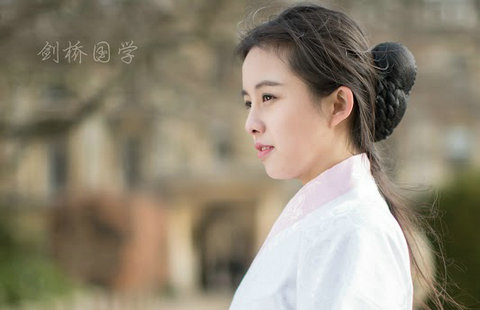
 Han-style Chinese beauties at Cambridge
Han-style Chinese beauties at Cambridge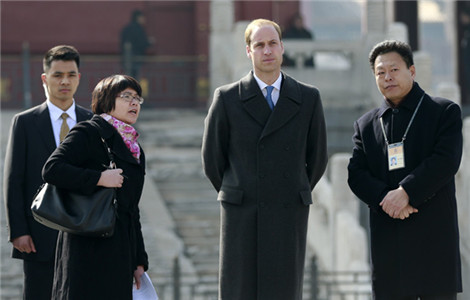
 Prince William visits Forbidden City
Prince William visits Forbidden City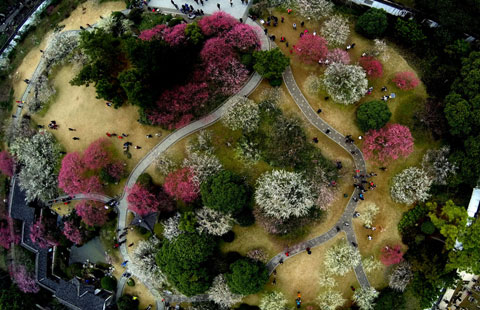
 Aerial views of plum blossoms as beautiful as oil paintings
Aerial views of plum blossoms as beautiful as oil paintings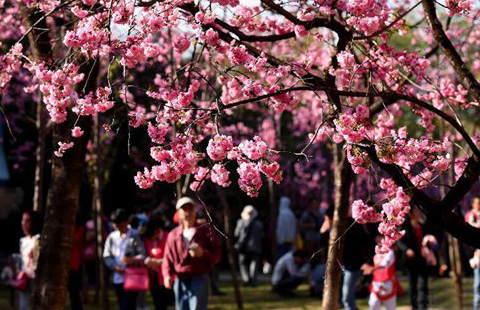
 Visitors enjoy cherry blossom in a park in SW China's Yunnan
Visitors enjoy cherry blossom in a park in SW China's Yunnan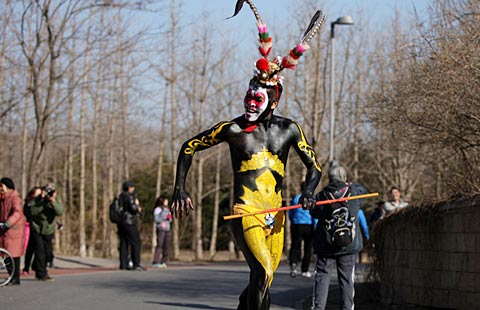
 Monkey king, angel and superwoman at Beijing's 'naked run' race
Monkey king, angel and superwoman at Beijing's 'naked run' race
 Red-crowned cranes in Yancheng
Red-crowned cranes in Yancheng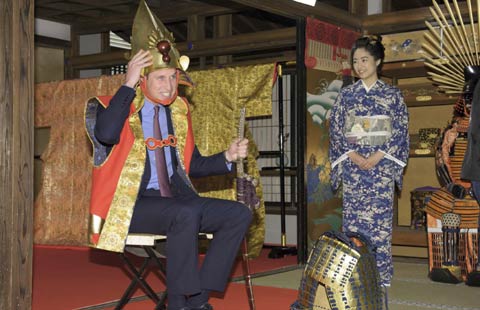
 Prince William evokes Diana memories on Japan tsunami trip
Prince William evokes Diana memories on Japan tsunami trip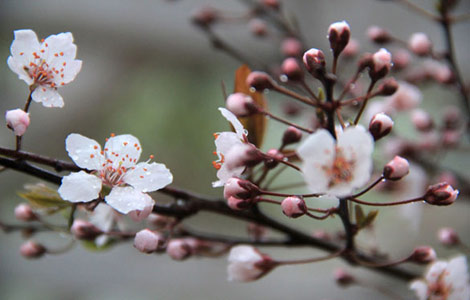
 Best times to view spring flowers in Beijing
Best times to view spring flowers in Beijing
Most Viewed
Editor's Picks

|

|

|

|

|

|
Today's Top News
US policy focused on Asia: official
China more proactive at UN
Cooperation potential called 'limitless'
Homeland Security funding drama darkens US fiscal outlook
17th Apple retail store in Chinese mainland opens in Shenyang
PBOC cuts rates to ease business financing
Former celebrity TV anchor on crusade against pollution
China ends UN council presidency
US Weekly

|

|







